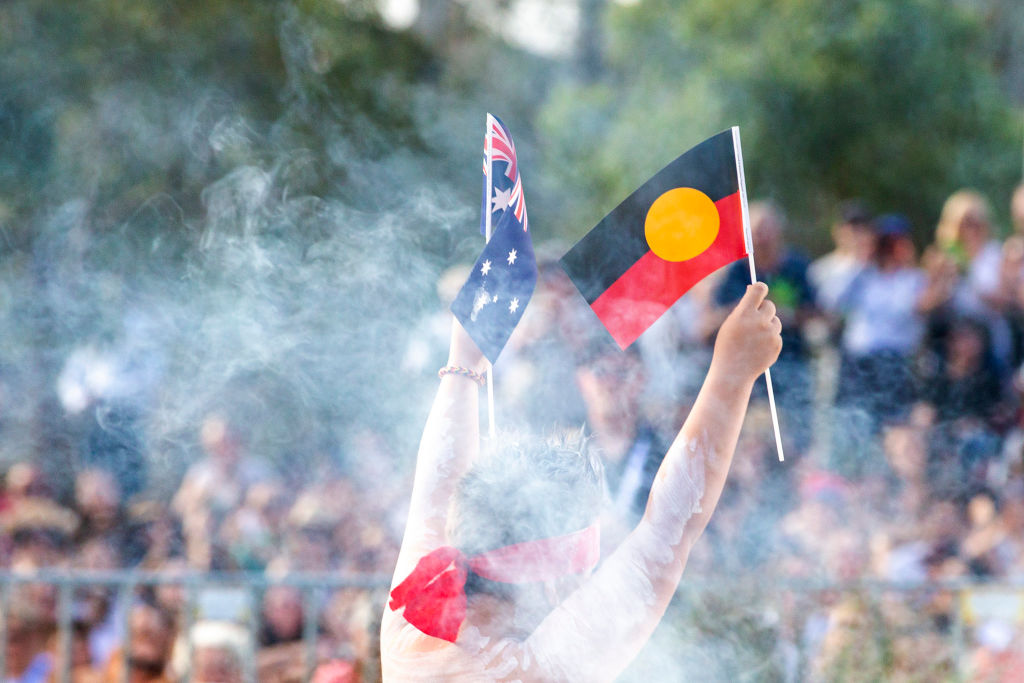
With 26 January looming, many Australians will be ashamed of the fact that First Nations people in this country are among the most incarcerated on the planet. Our children are almost 10 times more likely to be removed from their families. We are likely to die decades earlier than other Australians. We experience daily, systemic racism. These are the ongoing impacts of colonisation, racism, land dispossession and trauma.
The countless injustices Aboriginal people have faced began on 26 January 1788, but they continue today. Many have asked what it will take for this country to resolve the ongoing injustice.
The answer, I believe, can be found in a treaty. It’s something Aboriginal people have called for over many decades.
Under the UN Declaration on the Rights of Indigenous Peoples, which Australia endorsed in 2009, Aboriginal people have the right to self-determination and to compensation for the wrongs against us. Through the deliberative negotiation of a treaty, our rights can be fully realised. We can work through our painful history and we can all move forward as a nation, with peace and justice.
A treaty is a legally binding outcome of a negotiation that acknowledges Aboriginal people, as the first and sovereign peoples of this land, to have self-governance over our own affairs, to have economic independence and to have land.
Australia is among the only Commonwealth countries without a legally binding treaty with its first peoples. A treaty would provide an opportunity for First Nations people and the Australian state speak to one another, for the first time, as sovereign to sovereign. It would radically reshape the relationship between First Nations peoples and other Australians, beginning with an acknowledgement of a simple truth—that sovereignty of this land was never ceded.
A treaty is ultimately a peace agreement. Until sovereignty is recognised, there can be no lasting peace. Without a treaty, the many injustices suffered by Aboriginal people since the first landing, more than 200 years ago, cannot be properly addressed.
The invasion of this country is the first and fundamental injustice that occurred on this continent. It’s a deep and enduring stain on this nation, but it can be resolved by a treaty. A treaty will make Australia more equal, justice and peaceful, and therefore more united and cohesive.
This would not be the first time this country has considered the importance of a treaty as a means of achieving justice for First Nations people.
In 1988, Prime Minister Bob Hawke committed to a negotiated treaty with Aboriginal people after being presented with a document known as the Barunga Statement. In the statement, First Nations peoples called on the Commonwealth parliament to ‘negotiate with us a Treaty recognising our prior ownership, continued occupation and sovereignty and affirming our human rights and freedom’.
In 2021, some decades on from Hawke’s commitment to acknowledge the sovereign rights of Aboriginal people through a treaty, government proposals to achieve justice for First Nations peoples are far less ambitious.
In recent weeks, early proposals put forward by the advisory group for an Indigenous voice to parliament so far lack the ambition we need if we are to heal our country’s deep wounds. Under the draft model, the government of the day would not be required to take the advice of the voice, or to listen. Aboriginal people have been speaking to governments on both sides for decades. The voice will not serve us if the government and the parliament need not listen to it—nor will it bring about real change if it is not the voice of Aboriginal peoples as the first and sovereign people of this land.
Treaties must first be achieved by a truth-telling process that fully reveals the extent to which Aboriginal people have suffered—and continue to suffer—since the first landing, and how this can be addressed.
The Australian Greens party’s view is that the timing and sequence of these actions matter. A treaty and truth-telling are needed to make sure any changes in the constitution are meaningful and not just tokenistic. We’ve already seen this government watering down its original plans for a voice to parliament and being non-committal on constitutional recognition.
The denial of a treaty for First Nations people remains an injustice in this country. It denies us land, the means to achieve economic independence, self-governance, proper freedom to live in accordance with our culture and even proper recognition of our identity. The priorities for inclusion in treaty negotiation should be led by Aboriginal and Torres Strait Island people.
Only through proper treaty processes can Aboriginal people heal and have these rights restored. It will take a lot of talking, listening and good faith, and both Blak and white Australia will need to come on this journey, together.
At its heart, a treaty is about mutual respect—speaking to one another, as equals, and starting with the truth about what our people have faced since that first invasion. It would transform this country. A treaty that starts with truth-telling is the serious change that this country needs.
But we can’t do this alone. We need all Australians to come on this journey of truth-telling with us. Ahead of this year’s Invasion Day, we’re asking you to turn up for us. And we’re asking you to stand with us, to turn this day of mourning into a day of healing so we can all move forward together as a nation.
On 26 January, I hope you’ll join us.

